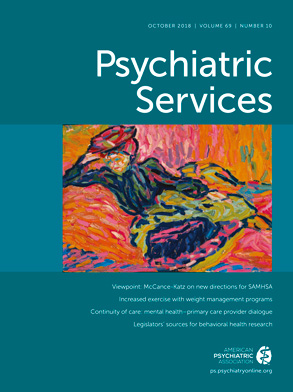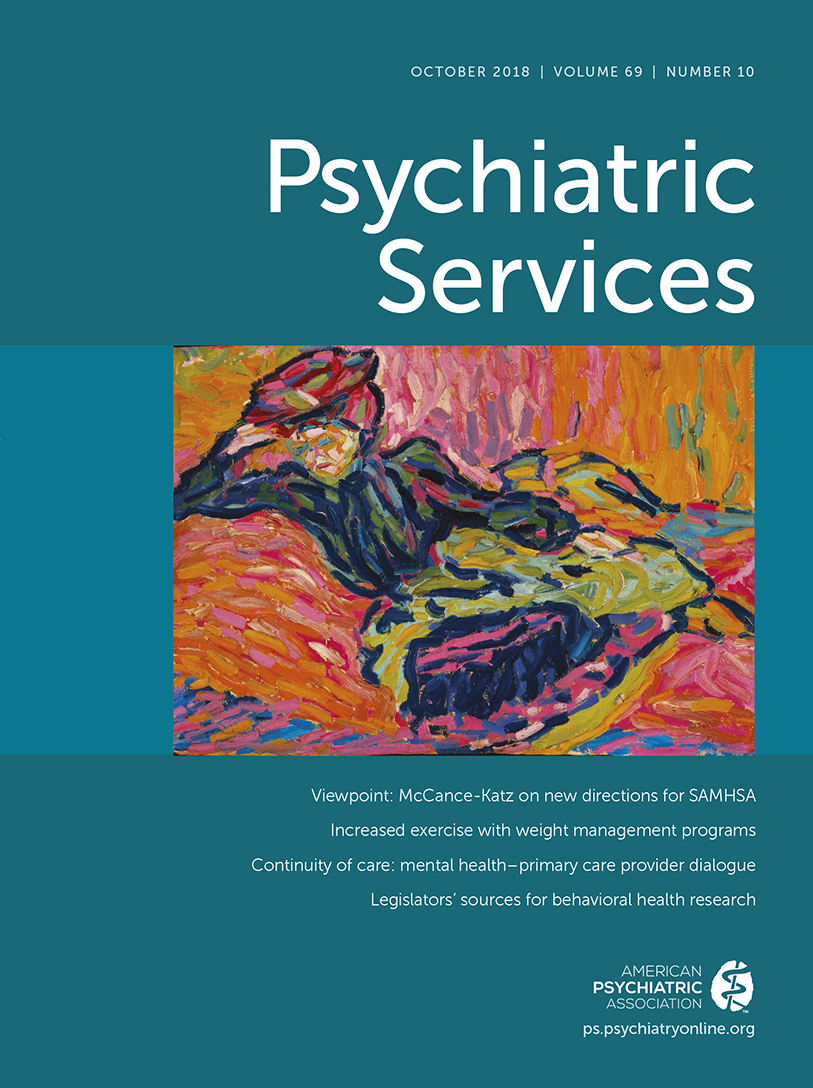A stereotypical clinical picture of a person living with chronic schizophrenia is someone with cognitive impairments and negative symptomatology. A case example from our work would be an inpatient who exhibits multiple neurocognitive impairments (on testing), exhibits restricted affect, paces up and down the ward talking to himself, and appears uninterested in interacting with others. However, how do we understand the transformation that occurs when this same person volunteers to grill food during a unit summertime picnic, engages in conversations with others while cooking, shows a range of affect, and plays Frisbee after lunch? Or what about a young man who scores within the severely impaired range on a variety of standardized cognitive assessments but is a virtuoso video gamer who writes his own music, drives his car in an urban area, and does well in college-level art courses? Would we still consider him “severely cognitively impaired?”
Research, both old and new, indicates vast situational variability in the expression of cognitive and negative symptoms among individuals with schizophrenia. Cognitive impairments (for example, difficulties in executive functioning, working memory, and attention) and negative symptoms (for example, blunted affect, amotivation, asociality, anhedonia, and alogia) are often correlated with one another, associated with poorer outcomes, and resistant to pharmacological interventions—and thus often perceived as intractable. Because of the relationship of cognition and negative symptoms with functional outcomes, it is paramount to understand the contexts that may improve such symptoms and then use that information to continue to develop, investigate, and implement treatments that help individuals with schizophrenia optimize their effectiveness in their multiple roles. The evidence for situational variability of these impairments offers hope for both practitioners and consumers of mental health services that these difficulties may be more malleable than previously thought. In this Open Forum, we discuss four contexts that appear to influence the severity of cognitive impairments and negative symptoms among persons with schizophrenia and highlight treatment implications for each.
Performance-Contingent Rewards
Performance-contingent rewards include financial, social, and other types (for example, food) of reinforcement. Although they may seem trivial, these rewards, particularly social reinforcement, have been shown to improve positive affect, self-efficacy, hope, and trust among persons with a variety of psychiatric conditions. Specific to schizophrenia, financial and social reinforcement have been shown to improve cognitive performance (including executive functioning), reduce the expression of negative symptoms such as self-neglect and inactivity, and improve social functioning (
1–
3).
One intervention that uses performance-contingent rewards to improve cognition and social functioning among persons with schizophrenia is the combination of attention shaping with skills training (
4). In this intervention, participants are given tangible rewards (money or food) and social reinforcement (praise and encouragement) when they complete small, individualized attention goals (for example, focusing on the person speaking for three consecutive minutes) during a group skills training session (for example, social skills training). As participants continue to meet their attentiveness goals in subsequent group sessions, the criteria for earning a reward are increased (for example, reinforcement is given for five consecutive minutes of attention). Integration of attention shaping and skills training has been shown to improve attentiveness (in and outside of study groups) and skills acquisition, compared with the effects of skills training alone. Social reinforcers can generate treatment effects that are comparable to those of tangible reinforcers (for example, money) (
3). Thus, mental health practitioners already have a powerful tool that, when used systematically and in conjunction with extinction techniques targeting inattentive and disruptive behaviors, can be expected to produce strong and generalizable gains, regardless of an agency’s budget.
Enriched Versus Deprived Environments
An enriched environment may include a number of factors, such as an increased opportunity for social interactions, increased autonomy, or access to evidence-based psychosocial rehabilitation services. Multiple studies have shown cognitive improvements when the external environment of a person with schizophrenia changes for the better (for example, when the person transitions from homelessness to living in an independent apartment) or becomes more structured, even in the absence of targeted cognitive interventions (
2). Furthermore, in psychiatric institutions, factors such as a more stimulating social environment (for example, number of positive statements made to patients) and physical environment (for example, number of personal possessions allowed in the patient’s room) are correlated with fewer negative symptoms and longer community tenure after hospital discharge (
5,
6).
The treatment implications of these data are clear: greater attention to the socioaffective contexts in which persons with schizophrenia live and are treated can lead to clinically significant improvements in multiple domains of functioning. This is not news. For example, the deinstitutionalization movement in the United States was partly inspired by public outcry over the deplorable conditions of state psychiatric facilities. However, the movement inadvertently led to an increase in homelessness and imprisonment rates of people with serious mental illness because of a lack of improvements in community-based care. The more recent promotion of recovery-focused care across the United States is one step in promoting enriching and personally meaningful environments after deinstitutionalization. However, the potential for environmental contexts and staff behavior to affect the outcomes of persons with schizophrenia has not been fulfilled and is typically not addressed in research and health care policy domains.
Defeatist Performance Beliefs
Defeatist performance beliefs are the overgeneralized negative thoughts about one’s abilities, such as endorsing the thought, “If I fail partly, it is as bad as being a complete failure.” These beliefs appear to moderate the relationship between negative symptoms and functioning and to mediate the relationship between negative symptoms and cognitive impairment among persons with schizophrenia (
7). This finding suggests that people with schizophrenia may not believe they can succeed at certain behaviors (social engagement and cognitive task performance), which in turn reduces their motivation to persist in challenging tasks, including neuropsychological tests (
7).
Cognitive-behavioral therapy is considered the benchmark for treating many mental health conditions and involves therapists helping consumers change their thoughts in order to help them change their feelings and behaviors. Thus, it is an ideal therapeutic orientation from which to address defeatist performance beliefs. Recovery-oriented cognitive therapy is one approach that promotes the development of positive beliefs about the self in people with schizophrenia. It does so via systematic engagement of the individual in personally meaningful activities in order to lead to a cycle of success, improved functioning, and reduced negative symptoms (
8). Such results suggest that explicitly targeting defeatist performance beliefs of persons with schizophrenia can reduce negative symptoms and may reduce cognitive impairments observed on standardized tests.
Stress and Physical Health
Stress and an elevated physiological arousal level are associated with illness onset and relapse among persons with schizophrenia. These individuals are at higher risk of co-occurring general medical conditions that are associated with stress, including hypertension, cardiovascular disease, and increased blood glucose levels. Stress and hypertension have both been associated with poorer cognitive performance in schizophrenia (
9,
10). The presence of diabetes, which has a profile of cognitive impairment virtually identical to that found in schizophrenia, is also associated with poorer cognitive functioning among persons with schizophrenia, with greater impairment related to greater diabetic severity (
11). In addition, there is some evidence that changes in the level of cortisol, a hormone whose release is often associated with stress, are correlated with negative symptoms among persons with schizophrenia (
12).
Individuals with schizophrenia benefit from the same psychosocial treatments that reduce stress and improve physical health of those without schizophrenia: treatments that focus on exercise, mindfulness, and improving positive emotion. Recent evidence has shown that exercise enhances outcomes as an adjunct to cognitive remediation—the gold standard treatment for cognitive impairments—among persons with schizophrenia (
13). Treatments that combine mindfulness with cognitive enhancement training are also showing promise (
14). Furthermore, improving positive emotions and mindfulness skills has been shown to promote resiliency, enhance cognitive resources, regulate stress responses, and improve other physical health outcomes of individuals with and without schizophrenia. Positive emotion and mindfulness interventions have also been shown to improve negative symptoms among those with schizophrenia (
15).
Discussion
This Open Forum discussion only scratches the surface of contexts that have been shown to influence the degree of expression of cognitive impairments and negative symptoms among persons with schizophrenia. Other important contexts should be considered in regard to their relationship to cognitive impairments and negative symptoms, including (but not limited to) culture, gender, affect and mood states, trauma history, psychological factors (for example, internalized stigma), sleep disorders (for example, apnea), the detrimental effects of anticholinergic load of medications on cognition, poor visual acuity, and the many complicated interactions that these internal and external factors have on one another. Furthermore, although not the focus of this Open Forum, positive symptoms, disorganized behavior, and aggressive behavior have also been shown to be modifiable by context, and thus the comprehensive approach we espouse should be relevant to other aspects of schizophrenia that are associated with a reduced level of functioning (
3,
16).
What remains clear is that the features of schizophrenia that are consistently found to be most related to functional outcomes under typical conditions can vary significantly as a function of multiple factors. Moreover, each of the factors we discussed is modifiable, and it has already been shown that specific modifications have clinical benefit. Rather than training practitioners to view cognitive impairments and negative symptoms as stable, core aspects of a mental disease, programs should train practitioners to use their clinical skills to promote internal and external changes associated with reductions in these symptoms. By systematically providing behavior-specific incentives (social or otherwise), improving living and treatment environments, increasing opportunities for personally meaningful activities, providing hope for recovery, allowing for experiences to build the confidence that a person can succeed despite beliefs to the contrary, and improving resilience to stress, clinicians can help individuals with schizophrenia combat the most debilitating aspects of their disorder.

